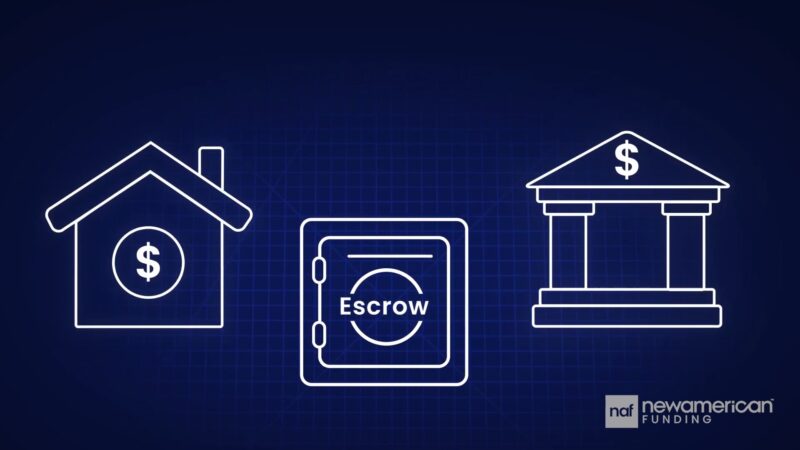Escrow disbursement is a fundamental concept in real estate and homeownership, serving as a financial arrangement where funds are held in an escrow account and disbursed for specific purposes. This mechanism primarily involves allocating a portion of a homeowner’s mortgage payments into an escrow account, which is then used to pay expenses such as property taxes, homeowners’ insurance, and sometimes mortgage insurance.
The process is overseen by an escrow agent, ensuring that payments are made timely and accurately. Escrow disbursement plays a crucial role in homeownership by providing a structured and secure way to manage these essential expenses.
It not only ensures that funds are available when needed but also offers peace of mind to both the homeowner and the lender. By automating the payment of critical bills, escrow disbursement helps in maintaining the financial health and stability of the homeowner’s investment, making it an integral part of the home-buying and owning experience.
Mechanics of Escrow Disbursement

Escrow accounts in homeownership are designed to securely hold funds for specific future expenses related to the property. These accounts act as a financial buffer, ensuring that money for critical payments is available when needed, thereby preventing defaults on essential homeowner obligations.
Types of Expenses Covered
The primary expenses covered through escrow accounts include homeowners’ insurance, property taxes, and in some cases, mortgage insurance. These are recurring costs associated with owning a home, and managing them through escrow simplifies the financial responsibilities of the homeowner.
Responsibilities and Oversight
The escrow agent is responsible for managing the escrow account. This includes accurately calculating the amount needed for each expense, collecting these funds as part of the mortgage payment, and holding them until disbursement.
The agent must also comply with legal and regulatory requirements, ensuring the account is managed ethically and transparently.
Ensuring Timely Payments
A critical function of the escrow agent is to ensure that payments for insurance, taxes, and other covered expenses are made on time. This involves monitoring due dates and disbursing funds from the escrow account to the appropriate parties, thereby safeguarding the homeowner from late fees or lapses in coverage.
Setting Up Escrow Disbursements

As we already stated, homeowners must supply detailed information about their property taxes, homeowners’ insurance, and any other relevant expenses. This includes policy numbers, tax rates, and insurance premiums.
Billing Addresses and Documentation
Homeowners must provide accurate billing addresses and any necessary documentation for their insurance and tax accounts. This ensures that the escrow agent can make payments correctly and on time.
Creating and Managing Escrow Accounts
Lenders are responsible for establishing and maintaining escrow accounts. This involves determining the total amount needed annually for taxes and insurance, and then dividing this total into monthly amounts to be collected with the mortgage payment.
Annual Analysis for Adjustments
Lenders conduct an annual escrow analysis to review the account and adjust the monthly payment if necessary. This adjustment accounts for any changes in tax rates or insurance premiums, ensuring the escrow account always has sufficient funds to cover expenses.
Legal and Regulatory Aspects
Escrow account regulations can vary significantly from state to state. Homeowners and lenders must be aware of specific state laws governing escrow accounts, including requirements for account setup, management, and disbursement procedures.
Mandatory vs. Optional Escrow
Some states require escrow accounts for certain types of loans, while in others, they are optional. Understanding these requirements is crucial for compliance.
Lender Responsibilities
Lenders are legally obligated to follow federal and state regulations in managing escrow accounts. This includes accurate calculation of escrow payments, timely disbursement of funds, and proper account handling.
Disclosure and Transparency
Both federal and state laws mandate clear disclosure of escrow terms and conditions to the homeowner. Lenders must provide detailed statements of escrow account activity, ensuring transparency and accountability in the management of these funds.
Benefits of Escrow Disbursement
Escrow disbursement ensures that funds are specifically used for their intended purposes, such as property taxes and insurance premiums, reducing the risk of misallocation.
Avoiding Defaults
By ensuring timely payments of taxes and insurance, escrow disbursement minimizes the risk of tax liens or insurance lapses, protecting both the homeowner and the lender.
Streamlined Payments
Homeowners benefit from the convenience of having taxes and insurance included in their mortgage payments, simplifying budgeting and financial planning.
Bundled Services
Some service providers, like Insurance Navy, offer bundled insurance options, potentially leading to premium savings for homeowners who manage these expenses through an escrow account.
Escrow in Real Estate Transactions

Initial Deposits
In real estate transactions, earnest money deposits are placed in escrow as a sign of good faith when an offer on a home is accepted. This deposit can later be applied to the down payment or returned under certain conditions.
Securing Interests
Escrow protects both parties in a real estate transaction. For buyers, it ensures their deposit is safe until the deal is finalized.
For sellers, it confirms the buyer’s commitment to the purchase.
Beyond Real Estate
Escrow services are used in a variety of business transactions, not limited to real estate. They provide a secure way to handle payments and agreements until all conditions of a transaction are met.
Escrow Fees and Costs
Inclusion in Closing
Escrow fees are typically included in the buyer’s closing costs. These fees cover the service of managing the escrow account and ensuring timely disbursement of funds.
Sharing and Negotiating
While commonly split between the buyer and seller, the distribution of escrow fees can be negotiated as part of the real estate transaction terms.
Regular Review
Escrow accounts undergo an annual analysis to adjust for changes in property taxes or insurance premiums, ensuring the account balance aligns with actual expenses.
Special Considerations
Payments like Homeowners Association (HOA) fees are typically not covered by escrow accounts. Homeowners need to manage these separately.
Transaction Status
Conditional Return
The return or forfeiture of an earnest money deposit depends on contract terms. If a home purchase falls through under certain conditions, the deposit may not be returned.
FAQ
What happens if the escrow account has more funds than needed?
If an escrow account accumulates more funds than required for taxes and insurance, the surplus is typically refunded to the homeowner or credited towards future payments.
Note: What to do with an escrow refund check?
Can homeowners choose their insurance providers when using escrow disbursement?
Yes, homeowners have the freedom to select their insurance providers. However, they must ensure the provider is acceptable to the lender and that all necessary information is provided to the escrow agent.
What occurs if a homeowner fails to pay the required escrow amount?
If a homeowner falls short in paying into the escrow account, the lender may cover the deficit but will increase future escrow payments to compensate for the shortfall, potentially raising the overall mortgage payment.
Are there any tax benefits to using an escrow account for property taxes and insurance?
While the use of an escrow account itself doesn’t provide direct tax benefits, it ensures timely payment of property taxes, which are generally tax-deductible for the homeowner.
How is the initial amount required in the escrow account determined?
The initial escrow amount is calculated based on estimated annual costs for property taxes, homeowners’ insurance, and any other required items like mortgage insurance, divided by twelve monthly payments.
Can a homeowner opt out of escrow disbursement after a certain period?
In some cases, homeowners may opt out of escrow disbursement once they have sufficient equity in their home and if their lender allows it. However, they must then manage and pay their property-related expenses directly.
Final Words
Escrow disbursement is an essential mechanism in real estate, ensuring a secure and structured management of homeowners’ expenses. Allocating a portion of mortgage payments into an escrow account covers critical expenses like property taxes and insurance, overseen by an escrow agent for accuracy and timeliness.
This system offers significant benefits: it guarantees the appropriate use of funds, reduces risks for both homeowners and lenders and simplifies financial planning by streamlining payments. Additionally, it can lead to potential savings through bundled services.
